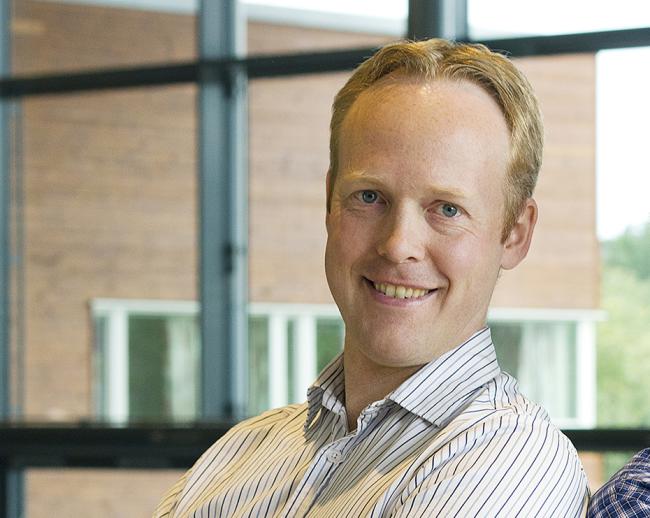Physics research receives positive response in review by the Swedish Research Council
2023-05-22The Swedish Research Council has conducted a review of physics research conducted at Karlstad University and 11 other higher education institutions. An independent evaluation panel, consisting of 14 international experts, has evaluated the research based on its scientific quality and societal impact.
- I represent the physics discipline here at Karlstad University and I feel that the Swedish Research Council’s review was a positive experience both in terms of the process and the outcome, says Marcus Berg, Professor of Physics. The review had the explicit purpose of evaluating Swedish physics research as a whole and in relation to other countries, not handing out “relative grades” within Sweden. We are a fairly small university, but where we are mentioned in the report, it is in a positive sense, such as Ellen Moon’s research on organic solar cells.
The evaluation is part of the Swedish Research Council’s mission to make national evaluations of various research subjects. 12 higher education institutions were selected to be part of the evaluation: Lund University, Uppsala University, Stockholm University, Chalmers, the Royal Institute of Technology (KTH), Linköping University, Umeå University, University of Gothenburg, Karlstad University, Linnaeus University, Luleå University and Mid Sweden University. Together, they represent 98% of all the people working in the research area of physics in Sweden and 99% of all publications in the area.
- They also evaluate “impact on society”, where we received great help from James Lees from GIO in clarifying the great impact that physics research actually has on society, says Marcus Berg. The impact of physics is already big and only seems to be increasing more and more. The Swedish Research Council highlighted Moyses Araujo’s research on artificial intelligence and sustainable energy storage. One might think that supercomputer simulations of quantum physics are not something that affects people’s everyday lives. But Moyses' previous doctoral student, now works for a battery company and the company state that they are extremely pleased that they managed to recruit such cutting-edge expertise. The awareness in society that we need better materials for energy-related technology has grown significantly in the last year alone, I find.
The evaluation panel’s concluding remarks
The panel states that the quality of the scientific output at an overall level is high and puts emphasis on the great impact of Swedish physics research nationally and internationally. With regard to the societal impact of physics research, the panel emphasises that several of the case studies highlight the strong connection of Swedish higher education institutions to industry, the education system and the international research community. The basis for the evaluation consisted of a selection of publications divided according to the proportion of physics research in Sweden at the higher education institutions concerned. The higher education institutions were also required to submit case studies describing the societal impact of a selection of their research in physics.
The panel finds that the field of condensed matter physics has strong representation in Sweden. They point out that this research field makes significant contributions to addressing societal challenges and drives several major technology trends. The panel particularly highlights research in innovative new materials, energy production and storage technology, where Sweden is well positioned to play an important role.
Societal challenges
Physics raises fundamental questions about the way we view the universe today, but also how we approach societal challenges, such as climate change, or develop new technological solutions, such as communication systems. The leaps we have made in our understanding of the world we live in are largely based on the use of advanced experimental techniques. Some of these techniques require large investments and the construction of research infrastructure. These facilities are to a great extent used in physics research and this has contributed to significant scientific progress in areas ranging from particle and nuclear physics to materials science.
The evaluation panel consisted of researchers from Germany, Sweden, Finland, Israel, Austria, the Netherlands, France and England. They studied scientific quality by looking at publications, bibliometrics, citations and the societal impact of physics research in case studies.
You can read the report “Quality and impact of research in physics in Sweden” here.


